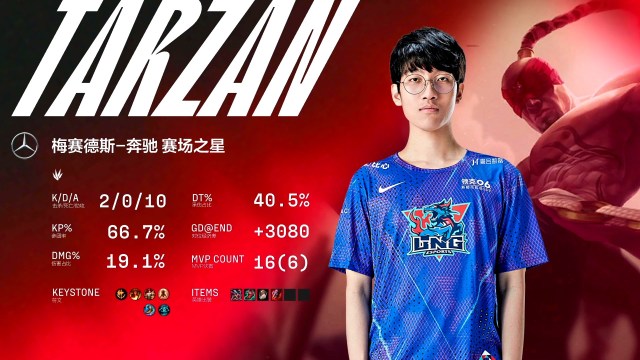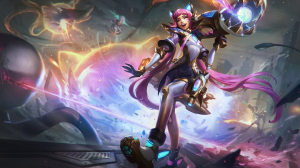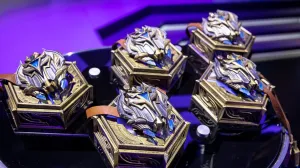A good death initially looks like an oxymoron. Dying to an opponent will not only give them gold and experience but also prevent you from doing anything until you respawn. Can it ever really benefit your team to die during a match?
For a long time, “good death” was just a classic phrase from the famous League of Legends streamer Simon “Thebausffs” Hofverberg when he took a few of his enemies down with him as Sion. But aside from the memes, there are moments in pro play where teams yield immense benefits from a teammate’s death. While the enemy team may gain the kill gold and deny some resources from the dead player, they may immediately or soon after receive significant losses that make the initial kill feel like a meager yield.
When a death in League of Legends is warranted
Two major forms of good deaths can occur in League of Legends games. Fortunately for me, both occasions happened in the first game of the series between LNG Esports and Bilibili Gaming for Legends Pro League 2022 Summer Playoffs.
After the pick-ban phase, BLG had a composition that gave immense agency to their bot laner Chiu “Doggo” Tzu-chuan, while Chen “Bin” Ze-Bin chose Sejuani, a low-resource top lane champion that would enable Doggo to play aggressively. Despite their initial game plan, Wei “Weiwei” Bo-Han identified Hu “Ale” Jia-Le overextending in lane and killed him around 6:30 minutes into the game. As the wave bounced back to Bin’s side two minutes later, Weiwei didn’t hesitate to repeat the play and killed Ale once more.
The critical difference between the two deaths was the presence of Rift Herald during the second time Ale died. With Bin using Glacial Prison to secure the kill onto Ale, he was significantly weaker during the Rift Herald contest and was consequently unprepared to fight Kim “Doinb” Tae-sang and Lee “Tarzan” Seung-yong. While one can’t with conscience state that Ale purposely died to burn Bin’s ultimate, this sequence nonetheless proves the point that expending immense resources for kills can potentially result in not having adequate resources to secure a more valuable objective.
Another case of a good death is when the enemy leaves one side of the map vulnerable in order to get a kill on the other side. At 16:25, Ale travels to bot lane to catch the wave. Bin and Weiwei prepare a trap to kill Ale if he shows up, and they successfully kill him. In this case, one can argue that Ale was fully aware of the danger. However, he also knows that BLG cannot invest two members in bot lane without taking catastrophic losses. In fact, when Ale died, LNG released their Rift Herald to kill the inner top tower, with Wang “Light” Guang-Yu getting large amounts of gold as a result.
Getting a kill in League of Legends is an excellent dopamine rush that also yields great returns. At the same time, it is essential especially in the highest levels of competition, to realize that it is merely an objective, and there are often far greater objectives at stake than kills.







